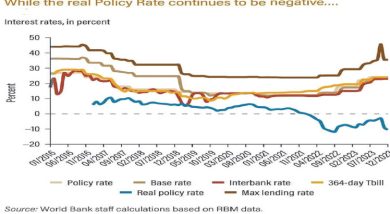Research faults Sadc trade protocol

A research by a Zimbabwe-based AfrAsia Kingdom Bank has described the Southern Africa Development Community (Sadc) trade protocol as weak and ineffective in eliminating non-tariff barriers (NTBs) within the 14-member trade bloc.
According to the bank’s analysis Business News has seen, countries within Sadc are actively using NTBs to block intraregional trade as they fight for markets.
NTBs are trade barriers that restrict imports but are not in the usual form of a tariff.
“The Sadc trade protocol which contains the framework of the Sadc trade regime, having been signed in August 1996, only entered into force four years later in 2000.
“The delay in the protocol’s entry into force was perhaps the first sign of the region’s lack of preparedness to undertake trade liberalisation,” noted the research.
The findings of the research have come at a time Malawi has progressively phased down its tariffs with Sadc and has reached 100 percent, according to a 2013 government annual economic report.
Sadc has been a free trade area (FTA) since 2008 after its member States reduced tariffs in intra-Sadc trade over an agreed eight years phase-down period from 2000 when the Sadc protocol on trade was signed.
Among others, the protocol was aimed at creating the FTA and it envisages the establishment of a customs union in the near future.
“Countries have not been keen to open up as quickly as Sadc protocol required, fearing their economies could be undermined by cheaper goods produced in the region and have made little progress in eliminating the trade restrictive NTBs, signalling lack of preparedness for the possible effects of an FTA,” said the research.
According to the research analysis, the elimination of NTBs should have been achieved in 2008, but noted that there has been a lack of commitment from some member States despite the increasing consensus among African policymakers that trade is a powerful engine for economic growth and development.
AfrAsia also observed that the NTBs within the Sadc FTA are affecting mostly the small to medium enterprises (SMEs) and the informal cross-border traders, adding that established companies are feeling the effects but they are better positioned to handle NTBs to some extent.
It said the main rationale for imposing NTBs is not to prevent trade but to reduce imports by making them more costly in the destination market which, it says, is working against the free movement of goods and persons across member States’ borders.
“The end result is a low intra-Sadc trade and deep poverty within the trading bloc,” said the research.
The research found that the low level of intraregional trade in Sadc compared to other regional trade blocs is mainly due to NTBs that remained unshakable in the region due to toothless legal framework.
While other trading blocs such as the European Union (EU) and the East African Community (EAC) decided to adopt a legally binding approach to address NTBs with sanctions to enforce compliance and enhance intra-regional trade, Sadc has chosen moral suasion by establishing various committees as a way to address the issue.
“Regrettably, the process lacks political will by governments of member states to reduce NTBs at national level,” said the research.
Ministry of Industry and Trade spokesperson Wiskes Nkombezi told Business News in a recent interview that Malawi will continue to adopt instruments that will facilitate the implementation of deeper regional integration, with a view to encourage intra-regional trade for the benefit of the regional economies.





